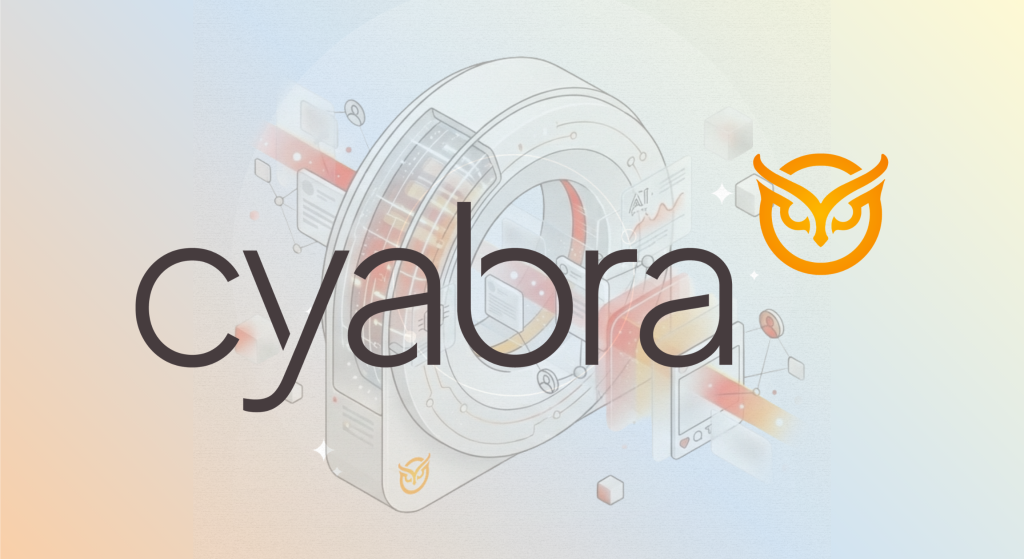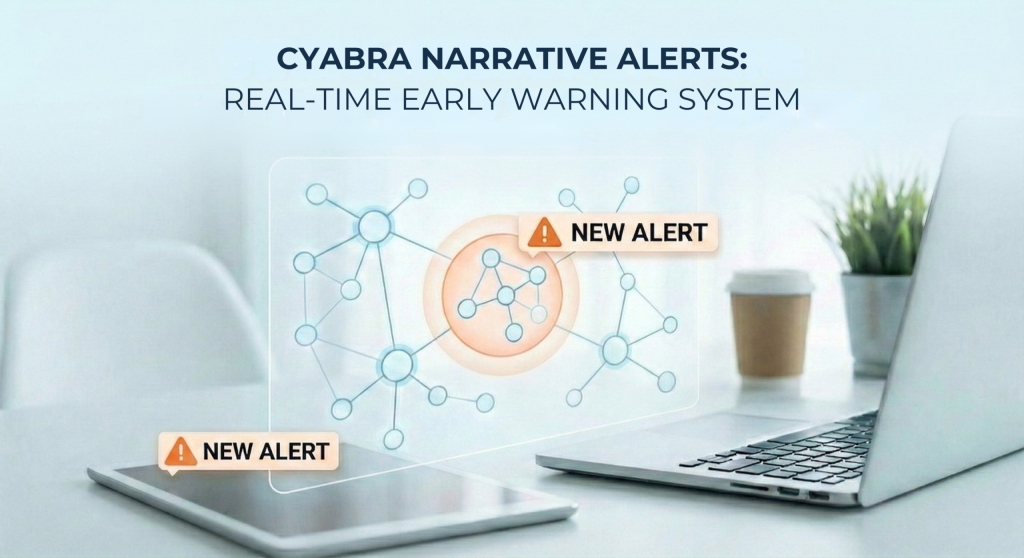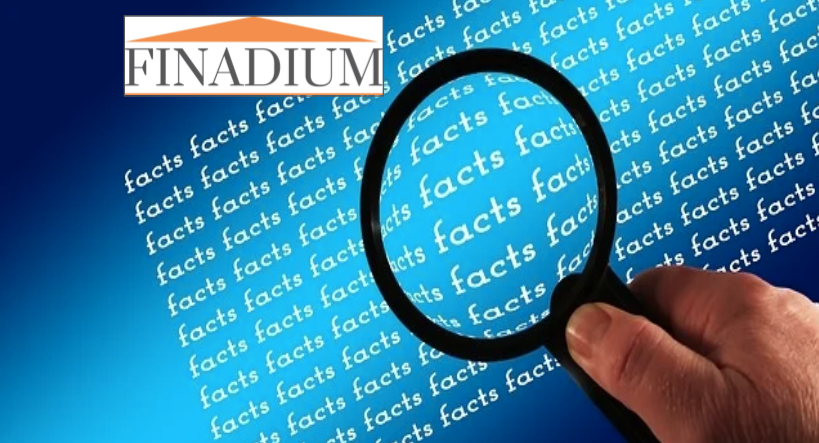The “Economic Blackout” initiative began trending on social media in early February. The activist group behind the movement declared Friday, February 28 a “No Spending” day, urging consumers to avoid shopping – especially from major corporations like Amazon, Walmart, Target, and Best Buy.
While the protest gained widespread promotion online, Cyabra’s latest research reveals that fake profiles played a significant role in amplifying and manipulating the trend.
Here’s the full story:
TL;DR?
- Hundreds of profiles on X promoted the Blackout using the hashtags #EconomicBlackout and #EconomicBoycott
- Content spread by fake profiles reached 5,328,000 views, merging seamlessly into authentic conversations and amplifying rage and mistrust
- The protest escalated into attacks on major brands, utilizing #BoycottWalmart, #BoycottTarget, #BoycottBestBuy, #BoycottAmazon, as well as #DEIrollbacks, posing a huge risk to brand reputation
Why Do Fake Profiles Love Boycotts So Much?
Cyabra analyzed online conversations around Economic Blackout Day from February 14 to March 2 and uncovered 391 fake profiles on X that promoted the boycott using the hashtags #EconomicBlackout, #EconomicBoycott, and #EconomicBlackout2025.
While the number of fake profiles in the discourse might not seem high, the content they spread gained a massive exposure of 5,328,000 views. Posts and comments by fake profiles were meticulously created, utilized the hashtags cleverly, and shared posters, images, and media coverage related to the protest, amplifying the backlash.
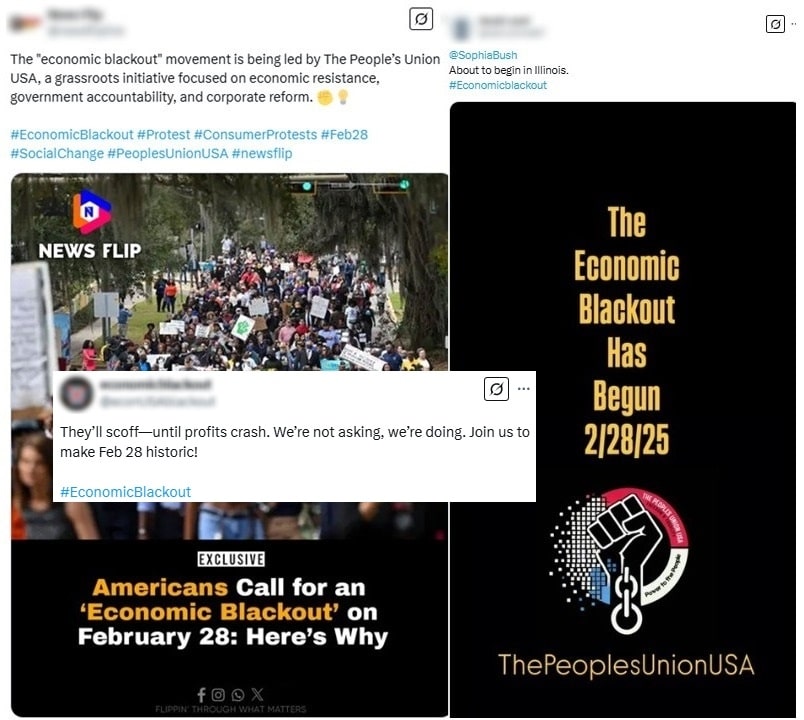
Image: fake profiles promoting Economic Blackout Day, using hashtags, posters and articles.
The fake profiles were also extremely successful in reaching the eyes of authentic profiles and spreading their messages through authentic communities, as can be seen in the picture below.
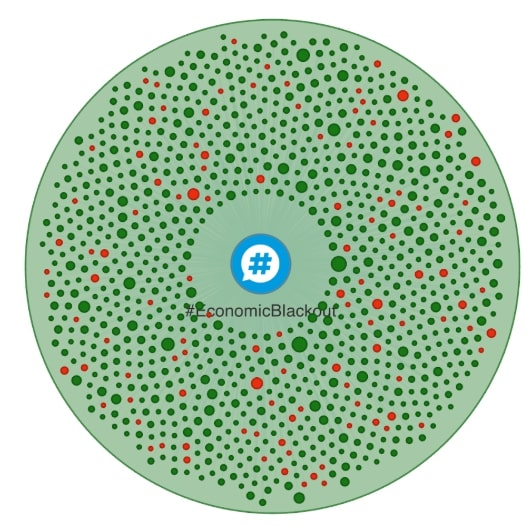
Image: Network of interactions among profiles using the most popular hashtag, #EconomicBlackout, highlighting how fake profiles seamlessly integrated into authentic conversations. Green represents authentic profiles, while red indicates fake ones.
Why do fake profiles care about protests? The answer is simple – those who operate them have something to gain by joining these online conversations, influencing real users, and manipulating public sentiment.
Since GenAI surged in popularity in 2023, the use of social media bots for coordinated attacks and fake campaigns has skyrocketed. While disinformation efforts once focused mainly on elections and global events, the low cost of bot networks and the ease of creating and deploying them have made them a fixture in many social media trends – especially negative ones like boycotts and backlashes.
In the Economic Blackout conversations, some fake profiles promoted the protest, while others mocked it and encouraged people to spend more. Though seemingly on opposing sides, both efforts served the same purpose – creating polarization, amplifying negativity, and fueling anger and confusion. This is the most common strategy used by fake profiles and has become a core tactic in their campaigns.
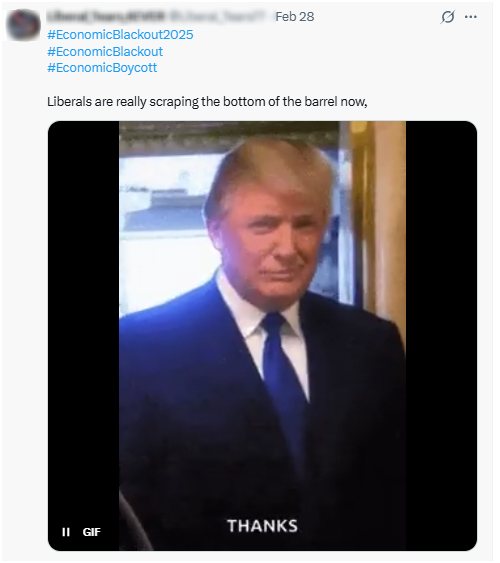
Image: a fake profile using the economic blackout hashtag to mock the trend, amplifying the negative discourse.
From Protest to Boycott: Brands Under Attack
As more accounts joined the discourse, the protest started shifting toward attacking industry giants. Many of these attacks strayed from the Economic Blackout theme, instead citing issues like canceled DEI policies, corporate greed, Black rights, and animal welfare.
Fake profiles seized this shift, latching onto new hashtags and narratives to spread consumer hate. Many directly targeted brands, using hashtags like #BoycottWalmart, #BoycottTarget, #BoycottAmazon, and #BoycottBestBuy.
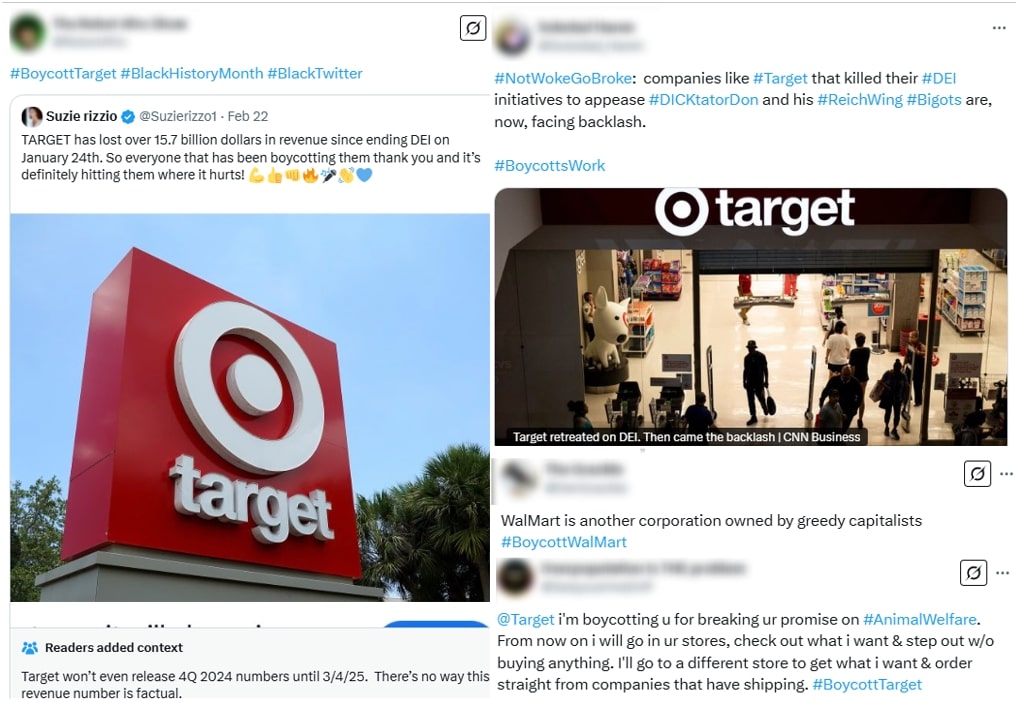
Image: Fake profiles have shifted from Economic Blackout hashtags to other trending topics, continuing their attacks on the targeted companies.
This shift in the movement created an even greater brand reputation challenge for the targeted companies. Many brands try to manage these issues with traditional crisis tactics – unaware they are engaging with fake profiles, ironically amplifying the negative trend.
As seen in the examples throughout this story, fake profiles are now harder to detect – making it more difficult than ever for brands to protect their online reputation.
The Growing Risk of Brand Disinformation
This crisis is not an isolated event – it is part of the growing phenomenon of “Brand Disinformation”, where fake profiles orchestrate coordinated attacks against companies. Many brands remain unaware that these crises are fueled by inauthentic accounts, leaving them unprepared to combat the wave of disinformation.
While “Economic Blackout Day” has ended, Cyabra identified multiple authentic accounts promoting ten upcoming “Boycott Days” as part of the same initiative, targeting major brands like Amazon, Nestlé, Walmart, Target, McDonald’s, and General Mills. Fake profiles will undoubtedly join these future campaigns, and their influence is expected to grow with the advancement of AI and automation tools.
Companies must be ready to face the next wave of brand disinformation – leveraging advanced monitoring tools to detect, analyze, and mitigate attacks in real time.
To learn more about protecting brands against online manipulation, reputational risks, and financial damage, contact Cyabra.
An authentic profile’s post about upcoming boycotts against brands in the next months.
